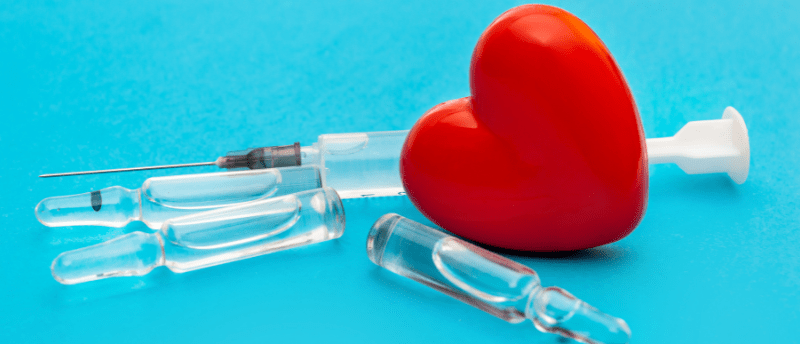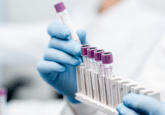mRNA COVID-19 vaccines linked to myocarditis in small subset of patients

A study into the immune responses of patients suffering from post-vaccine myocarditis reveals elevated levels of spike protein, cytokines and troponin in affected individuals. These findings will help inform potential treatments to prevent or reverse post-vaccine myocarditis.
For most, the arrival of the SARS-CoV-2 vaccines was a welcome relief from the uncertainty of the pandemic and a promise of returning somewhat to normality. For others, these vaccines marked the beginning of another health concern: myocarditis. Although a rare complication of mRNA COVID-19 vaccines, a small subset of patients experienced inflammation of the heart muscle post-vaccination with the BNT162b2 Pfizer and mRNA-1273 Moderna vaccines. However, severe COVID-19 symptoms still outweigh the rare risk of post-vaccination myocarditis.
Co-corresponding author and pediatric pulmonary medicine specialist Lael Yonker commented:
“The risk of developing severe disease from acute infection significantly outweighs this rare risk. While this finding helps us better understand this potential complication, it does not alter the risk benefit ratio of receiving the COVID vaccines. The incidence of myocarditis and other heart-related complications among children infected with SARS-CoV-2 is much higher than the risk of post-vaccination myocarditis.”
Published in Circulation, extensive investigation into the immune responses of 16 young adults and adolescents with post-vaccination myocarditis and 45 non-affected individuals was conducted. The study involved testing blood samples for SARS-CoV-2 specific humoral responses, assessment of autoantibodies / antibodies against the human relevant virome, SARS-CoV-2-specific T-cell analysis, as well as cytokine and SARS-CoV-2 antigen profiling.
You may also be interested in:
- Nature’s booster: adjuvant derived from marine sponges stimulates immune response in protein-based COVID-19 vaccines
- Accelerating vaccine development timelines with experience, expertise and automation
- eBook: vaccine development in clinical trials
The antibody and T-cell response between affected and nonaffected individuals was indistinguishable, however, using Simoa® technology, affected individuals were found to have markedly higher levels of full-length spike protein, cytokines and troponin, whilst unaffected individuals had no detectable increase. Elevated cytokine levels are consistent with innate inflammation, whilst increased troponin levels are associated with cardiac injury.
David Walt, professor in the Department of Physiology at Brigham and Women’s Hospital (MA, USA) further explained:
“Understanding the mechanisms that drive post-vaccine myocarditis could guide vaccine development in the future and give us important insights about the immune response. This was a precious sample set because these cases are so rare. We studied them in great depth, which led to an interesting finding that could guide treatment strategies to reverse post-vaccine myocarditis.”
Although the study provides new insights into post-vaccination myocarditis, the authors are conscious of the small sample size of this study. Additionally, further investigation is needed to determine whether spike protein causes inflammation seen in post-vaccination myocarditis, or whether inflammation is a biomarker of immune dysregulation, which leads then to myocarditis:
“In most cases, post-vaccination myocarditis is mild and self-resolving. But new insights about its cause could further help us to improve patients’ symptoms or prevent this complication from occurring”, Yonker continued.
The researchers are hopeful that these finding will help guide potential treatments to prevent or even reverse post-vaccine myocarditis, despite having only a small subset of patient data to work with.
Sources: Yonker LM, Swank Z, Bartsch YC et al. Circulating spike protein detected in Post-COVID-19 mRNA vaccine myocarditis. Circulation (ePub ahead of print), doi: 10.1161/CIRCULATIONAHA.122.061025 (2023), Eurek alert press release https://www.eurekalert.org/news-releases/975516





